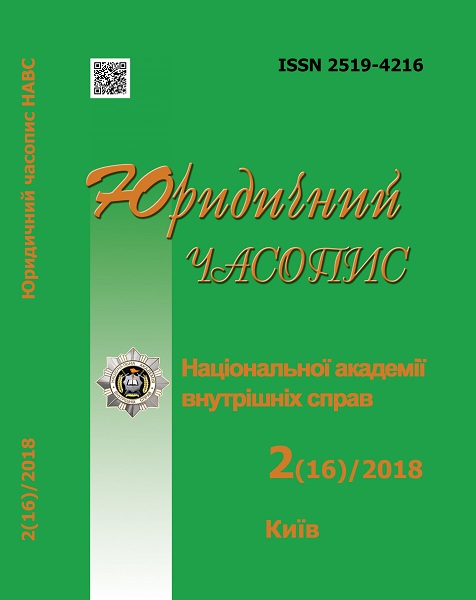Topical Questions about the Limitations of Receiving Gifts
Abstract
The article analyzes violations of the restrictions established by law in obtaining gifts provided for in Article 1725 of the Code of Administrative Offenses. The main features of the gift are formed as the subject of an administrative offense related to corruption, including: 1) cash or other property, benefits, benefits, services, intangible assets, 2) provide/receive free of charge or 3) at a price below the minimum market. The author considers a gift through the prism of things covered by these concepts, in particular property, benefits, benefits, services, intangible assets that provide/receive free or at a price lower than the minimum market value. In addition, the author analyzes key gaps in anti-corruption legislation regarding the value of a gift that is consistent with generally accepted notions of hospitality for the proper qualification of an administrative offense related to corruption. Exceptions to the restrictions on the receipt of gifts in the context of receiving gifts from close persons and to receive them as public discounts on goods, services, public prizes, prizes, bonuses, bonuses, and also it is proposed to expand the list of persons who receive gifts and are included in the circle of a close the environment of persons authorized to perform functions of the state and local self-government bodies. Proposed changes to the anti-corruption legislation in terms of a clear definition of the legal composition of the offense, and the definition of clear restrictions on the receipt of gifts when officials perform their administrative and economic and organizational and regulatory functions.
Downloads
Abstract views: 115 PDF Downloads: 75
Copyright (c) 2019 Law Magazine of the National Academy of Internal Affairs

This work is licensed under a Creative Commons Attribution-NonCommercial-NoDerivatives 4.0 International License.
- Authors reserve the right to authorship of their own work and transfer to the magazine the right of the first publication of this work under the terms of the Creative Commons Attribution License, which allows other persons to freely distribute published work with mandatory reference to authors of the original work and the first publication of an article in this magazine.
- Authors have the right to enter into separate additional agreements on non-exclusive dissemination of the work in the form in which it was published in the journal (for example, to post an article in the institution's repository or to publish as part of a monograph), provided that the link to the first publication of the work in this journal is maintained.
- The journal's policy allows and encourages the posting of articles by authors on the Internet (for example, in electronic storehouses of institutions or on personal websites), both before the submission of this manuscript to the editorial office and during its editorial processing, as this contributes to the creation of a productive scientific discussion and positively affects the efficiency and dynamics of citing the published work.




